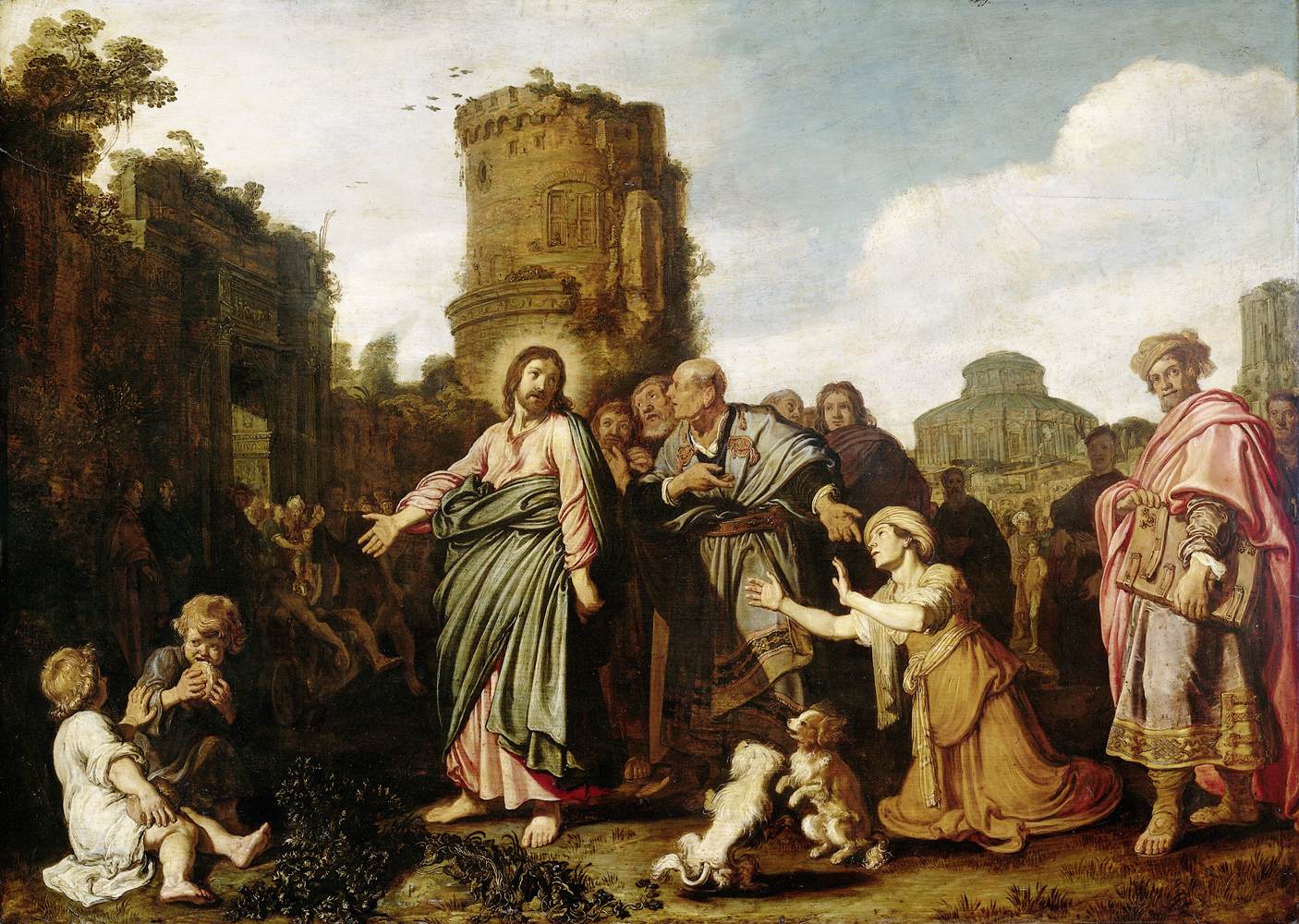耶穌從勒乃撒勒動身,往提洛和漆冬境內去了。耶穌進了一家,不願任何人知道,但是不能隱藏。當下就有一個婦人,她的女兒附了邪魔,一聽說耶穌,就來跪伏在他腳前。這婦人是個外邦人,生於敘利腓尼基;她懇求耶穌把魔鬼從她女兒身上趕出去。耶穌向她說:「應先讓兒女們吃飽了,因為拿兒女的餅扔給小狗是不對的。」那婦人卻回答說:「主,是啊!可是小狗在桌子底下,也可吃到孩子們的碎屑呢!」耶穌對她說:「為了這句話,你去吧!魔鬼已從你女兒身上出去了!」她一回到自己家裏,看見孩子躺在床上,魔鬼已出去了。
馬爾谷福音 7:24-30
耶穌稱外邦人為小狗,並說拿兒女的餅扔給小狗是不對的,是指耶穌的救恩是天主早應許給亞巴郎的後裔,即猶太人;所以先給外邦人,是不對的。耶穌對婦人這樣說,其實並非真的拒絕她,而是藉她堅定的信德,鼓勵其他人在祈禱時也要懷有堅定、不容易氣餒的精神。
婦人接受小狗的稱呼,還表示她願留在桌子底下,為吃到孩子們掉下的碎屑;這顯出她對主的信賴,亦因她充滿智慧的回答,耶穌應允了她所祈求的,即魔鬼從她女兒身上出去了。
我們這些罪人,其實也如耶穌口中的小狗,不值得領受天主的麵餅,或參與祂頒下的聖事;可是如果我們能懷著痛悔和謙卑的心,來到主前懇求祂的憐憫,仁慈的天主必定會醫好我們的靈魂,幫助我們脫離邪惡的生活,如祂也為婦人的女兒驅走魔鬼一樣。
(本文以英文為準)
Jesus went to the district of Tyre. He entered a house and wanted no one to know about it, but he could not escape notice. Soon a woman whose daughter had an unclean spirit heard about him. She came and fell at his feet. The woman was a Greek, a Syrophoenician by birth, and she begged him to drive the demon out of her daughter. He said to her, “Let the children be fed first. For it is not right to take the food of the children and throw it to the dogs.” She replied and said to him, “Lord, even the dogs under the table eat the children's scraps.” Then he said to her, “For saying this, you may go. The demon has gone out of your daughter.” When the woman went home, she found the child lying in bed and the demon gone.
Mark 7:24-30
Jesus calls the Gentiles dogs, as they were thought wicked by the Jews; and He means by bread the benefit which the Lord promised to the children, that is, to the Jews. The sense therefore is, that it is not right for the Gentiles first to be partakers of the benefit, promised first to the Jews. The reason, therefore, why the Lord does not immediately hear, but delays His grace, is that He may also show that the faith of the woman was firm, and that we may learn not at once to grow weary in prayer, but to continue earnest till we obtain.
The woman placing herself therefore in the rank of dogs is a mark of her reverence; as if she said, I hold it as a favor to be even in the position of a dog, and to eat not from another table but from that of the Master himself. Because the woman answered with much wisdom, she obtained what she wanted; wherefore there follows, "And he said unto her, etc." He did not say, My virtue has made you whole, but "for this saying, that is, for your faith, which is shown by this saying, "go your way, the devil is gone out of your daughter."
The soul of each of us also, when we falls into sin, becomes like this woman; and this soul has a daughter who is sick, that is, evil actions; this daughter again has a devil, for evil actions arise from devils. Again, sinners are called dogs, being filled with uncleanness. For which reason we are not worthy to receive the bread of God, or to be made partakers of the sacraments of God; if however in humility, knowing ourselves to be dogs, we confess our sins, then the daughter, that is, our evil life, shall be healed.
參考 References:
Catena Aurea (St. Thomas Aquinas)
Explanations on the New Testament (St. Theophylact of Ochrid)
Pseudo-Chrysostom
